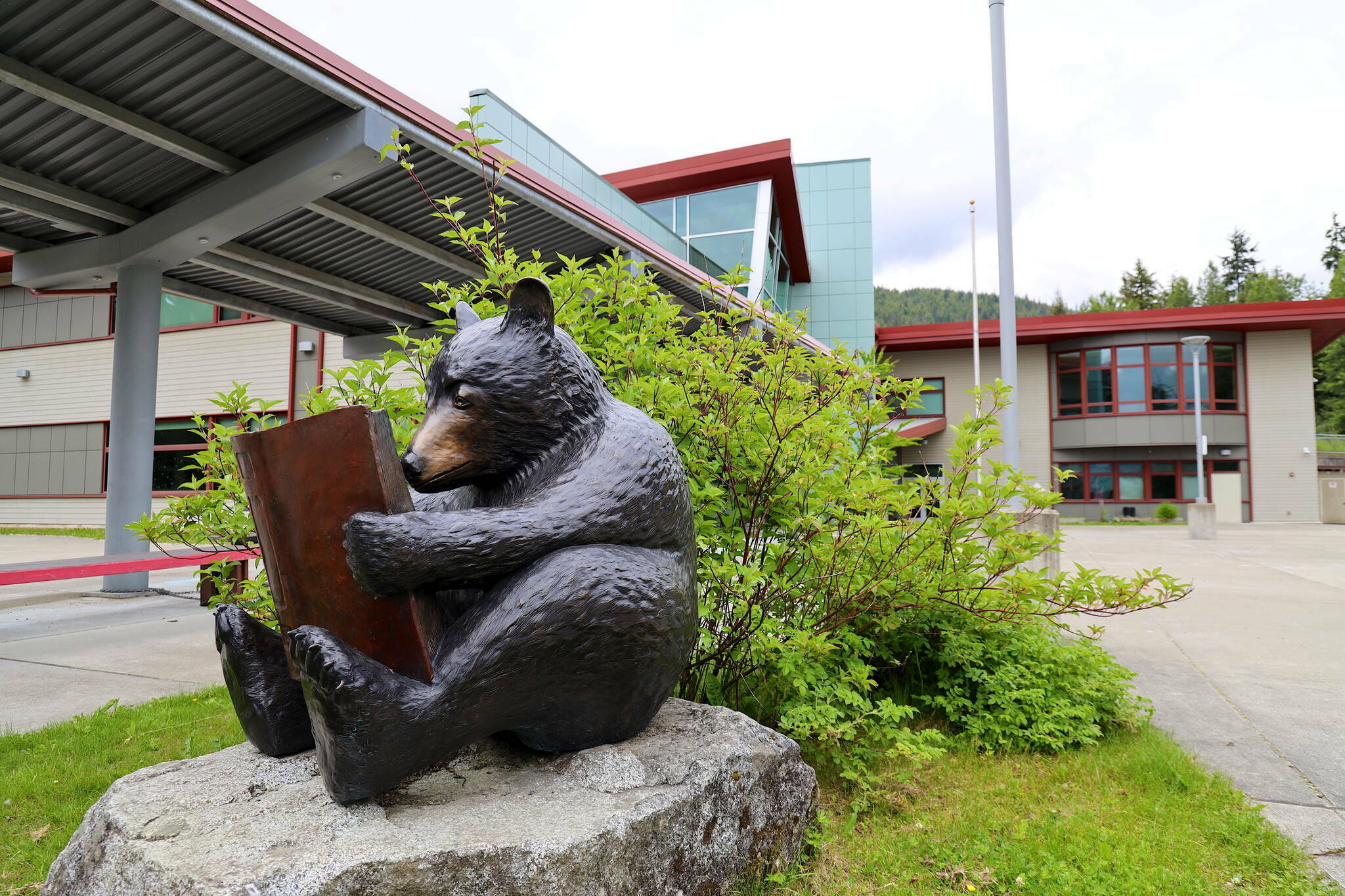Now that a state budget providing an extra $5.2 million to the Juneau School District is signed into law, school board members who made drastic cuts to deal with a projected deficit of nearly $10 million may add back dozens of employees for purposes such as special education, homeschooling and smaller class sizes during a meeting at the end of this week.
A list of possibilities has been evaluated, ranked and modified in recent weeks by the school board and district administrators. School board members met Friday to give initial consideration to a formal proposal approving the add-backs, with public comment and a possible vote on the proposal scheduled during a meeting at 10 a.m. Saturday.
“Each item on the add-back list was identified as a need through board discussion, staff and community input, (and) administration recommendation,” Superintendent Frank Hauser said during Friday’s meeting. School board members were asked before the meeting to rank a list of 17 items identified as needs, with the results presented during the meeting.
While the add-backs won’t undo the consolidation of schools that officially took effect with the new fiscal year that started Monday, they will lower the pupil-teacher ratio for some prioritized programs by restoring staff positions that were cut, as well as retain what officials said are necessary levels of staff for functions such as maintenance and information technology.
However, Hauser cautioned, the add-backs are being covered by a one-time funding increase for the coming fiscal year, meaning there is no guarantee the same amount of money will be available a year from now.
The 17-item list contains more than 35 full-time equivalent positions (FTEs) — including “fractional” instances such as categorizing two part-time staff as one full-time position — at a total cost of nearly $3.3 million. The top five priorities are, in order:
• HomeBRIDGE, the district’s correspondence program, by adding 1.2 FTEs at a cost of $140,000.
• Secondary school support staff to lower the pupil-teacher ratio (PTR), adding three FTEs at a cost of $360,000.
• Special education paraeducators, adding four FTEs at a cost of $266,000.
• Paraeducators to assist with various duties ranging from working with students in Individualized Educational Program (IEPs) to staffing at recess, with seven FTEs at a cost of $175,000.
• Elementary school support staff to lower the PTR, adding six FTEs at a cost of $720,000.
The extra funding is due to a one-time $680 increase in the state’s Base Student Allocation formula for public schools, which is permanently set in statute at $5,960, with the district’s share based on projected enrollment for the fiscal year that starts July 1. Hauser said the list he presented totals $3.3 million because that is the median amount board members collectively stated they were comfortable with — following previous meetings where factors such as unanticipated expenses and the uncertainty of similar funding in future years were mentioned.
Also, while Gov. Mike Dunleavy signed the per-student funding increase as well as a one-time increase in student transportation funding, he vetoed other education-related items that would have provided funds to the Juneau School District such as K-3 reading assistance.
Board members spent Friday debating the most useful placements for educators being restored for the coming school year without taking any formal votes that altered the list. In addition, there was considerable discussion about non-classroom jobs seen as essential, such as a “swing” custodian working at various schools as needed.
“We focus on being able to have teachers to provide education, we sometimes forget about what it takes to keep the buildings open and operating and clean,” said Deedie Sorensen, the board’s president. “I thought the swing custodian was, as a former elementary school teacher, extremely important because over the years the number of custodians that we’ve had in the building has been reduced.”
David Noon, elected to the school board last fall, expressed agreement and said he ranked the item high on his list.
“We got several pretty data-filled emails about this,” he said. “And one thing that stands out to me is that the square footage that our current custodial staff is being asked to clean is far more — roughly twice, I think — what the state guidelines are, particularly for the kind of cleaning that needs to happen at a school, the hours that would be involved.”
Adding one full-time swing custodian at a cost of $66,500 is the last-ranked item on the 17-item list. However, Hauser said that means the position would still be funded if the board approves the list. Similar debate occurred about adding one full-time maintenance employee, ranked ninth on the list at a cost of $80,000.
Restoring staff who can provide assistance with computers and other devices was emphasized by Kristina Derr, the district’s information technology supervisor. She told board members the district now has half as many IT staff working on more than twice as many devices compared to when she started her job nine years ago.
“There isn’t a student or a staff member in the district that doesn’t do something that IT touches every single day,” she said. A teacher can’t even take attendance without their computer working properly.”
Adding one IT specialist at $80,000 is the 11th-ranked item on the list. Derr said that without more staff the department will be forced to close its help desk, which means teachers might have to wait for a couple of days for an in-person visit from an IT employee rather than resolving a problem with “a 45-second phone call.”
• Contact Mark Sabbatini at mark.sabbatini@juneauempire.com or (907) 957-2306.

